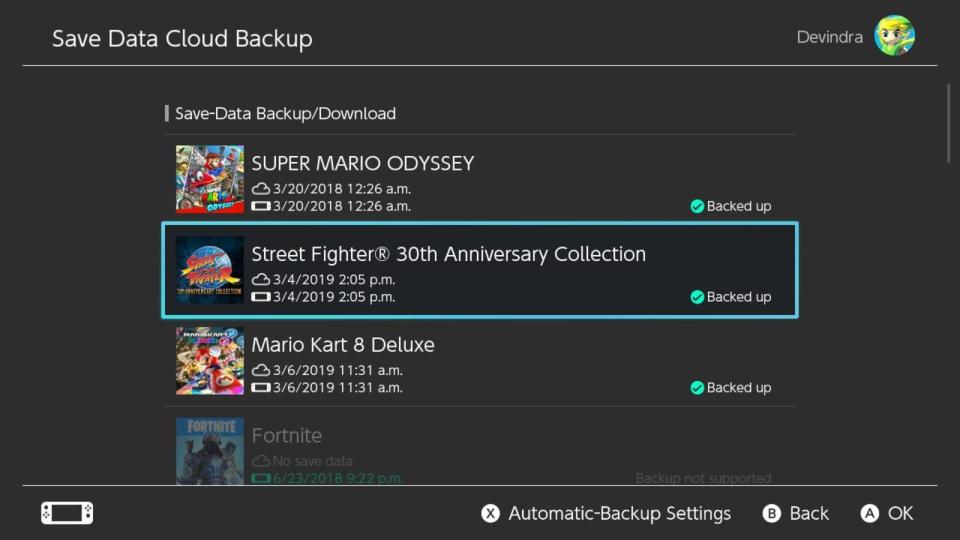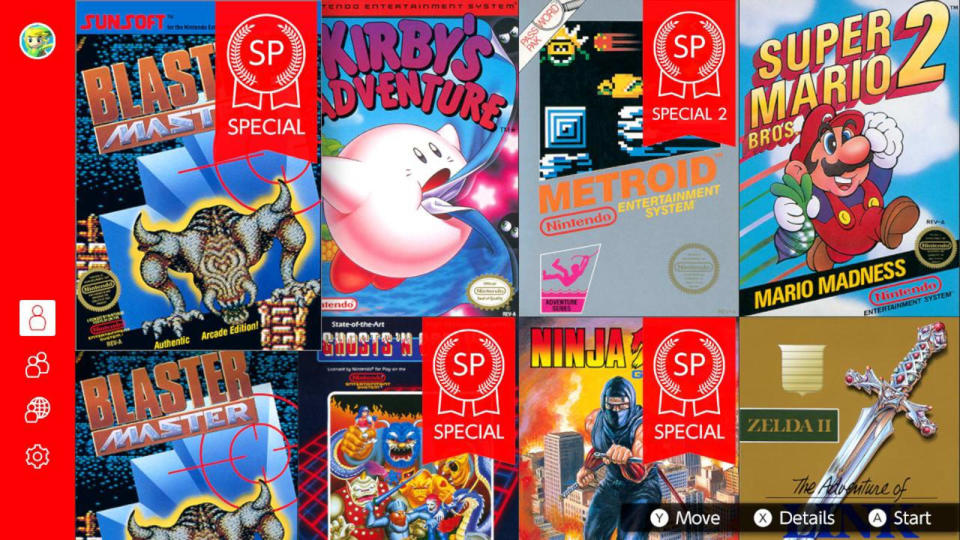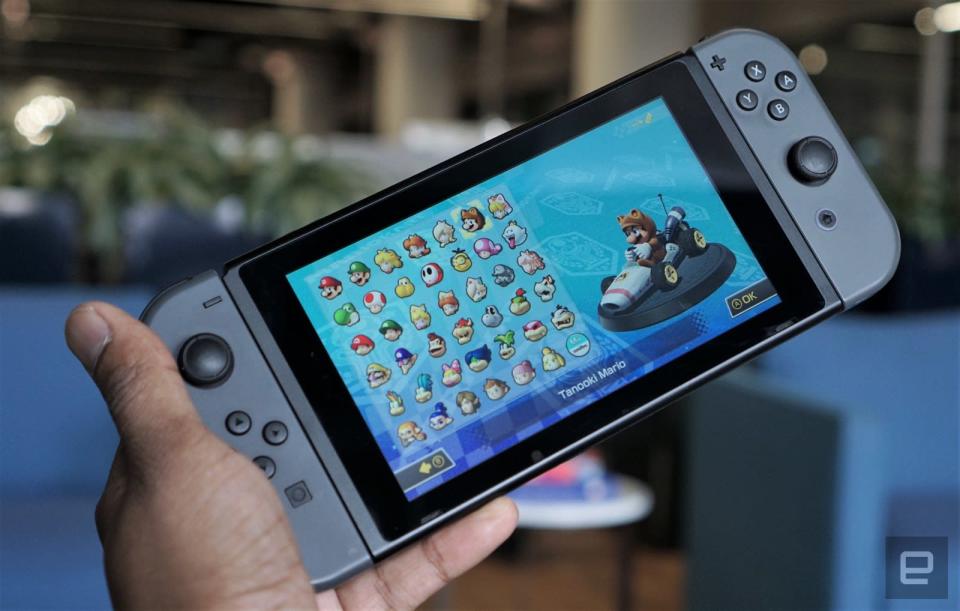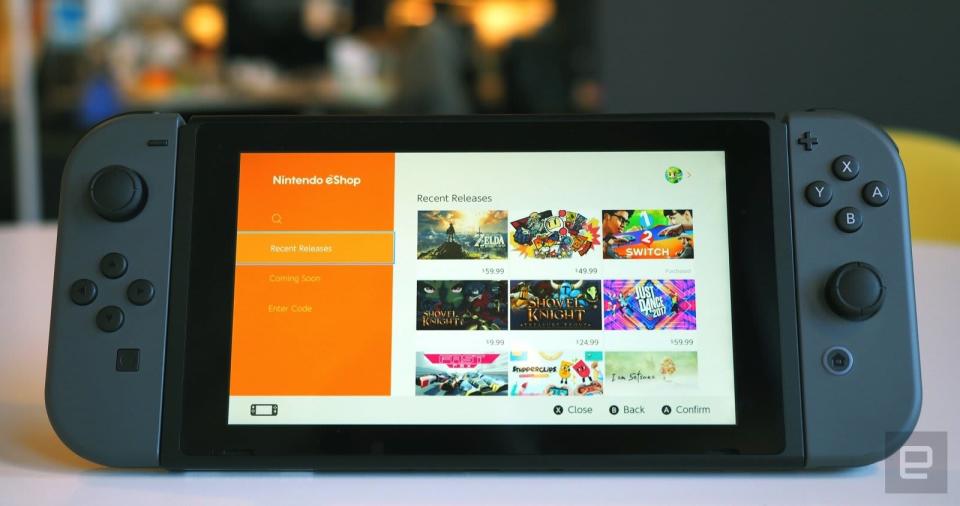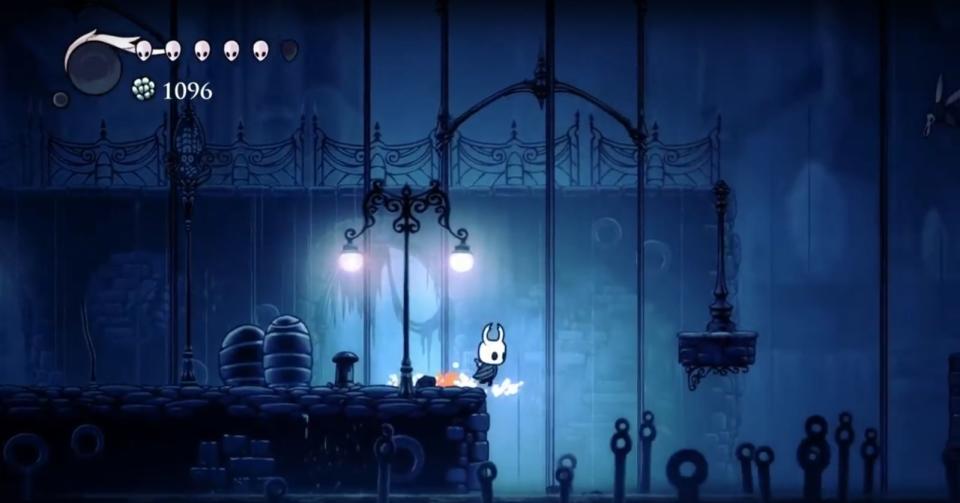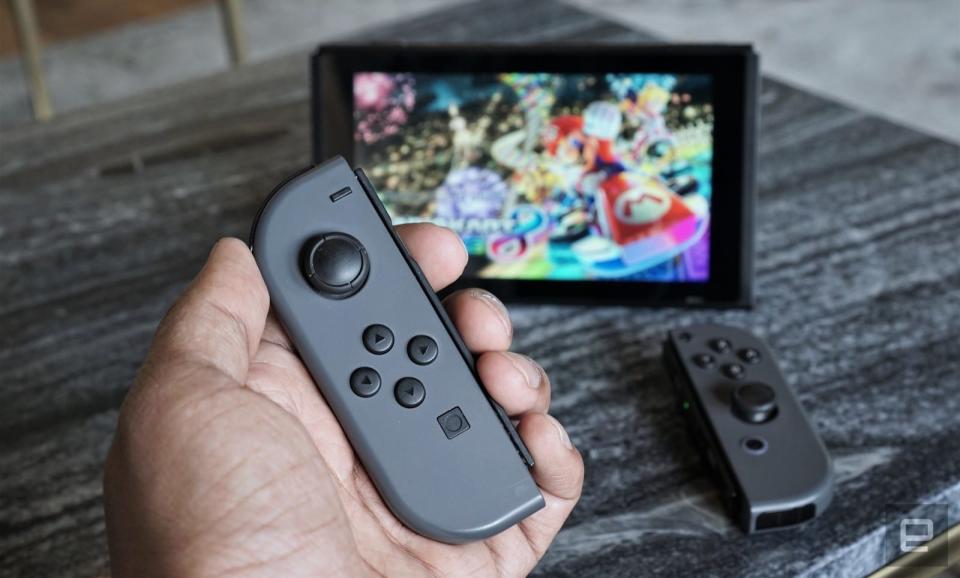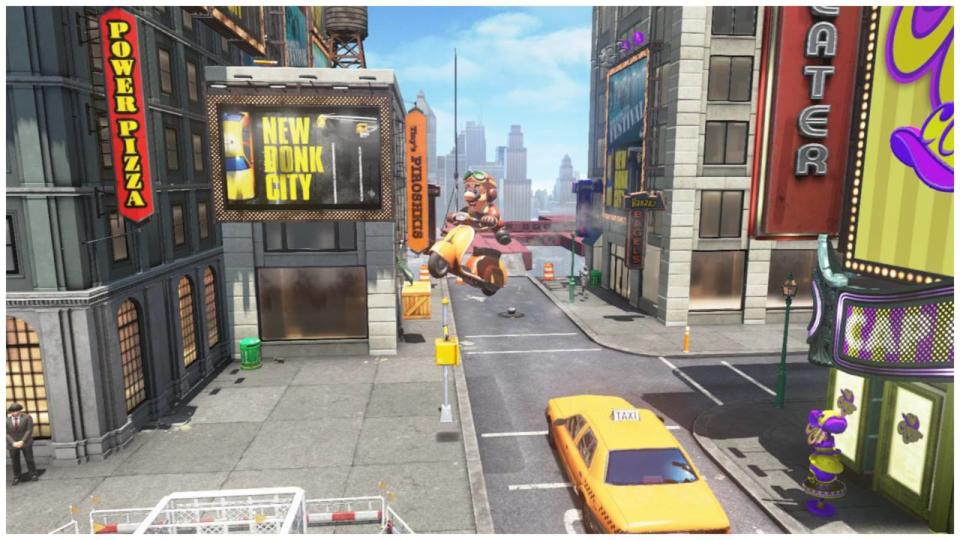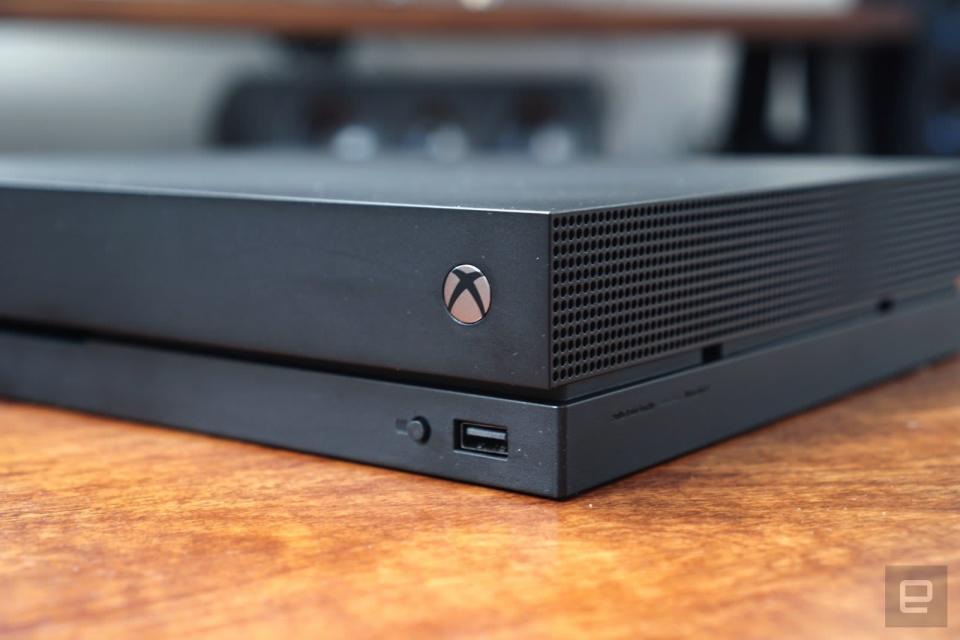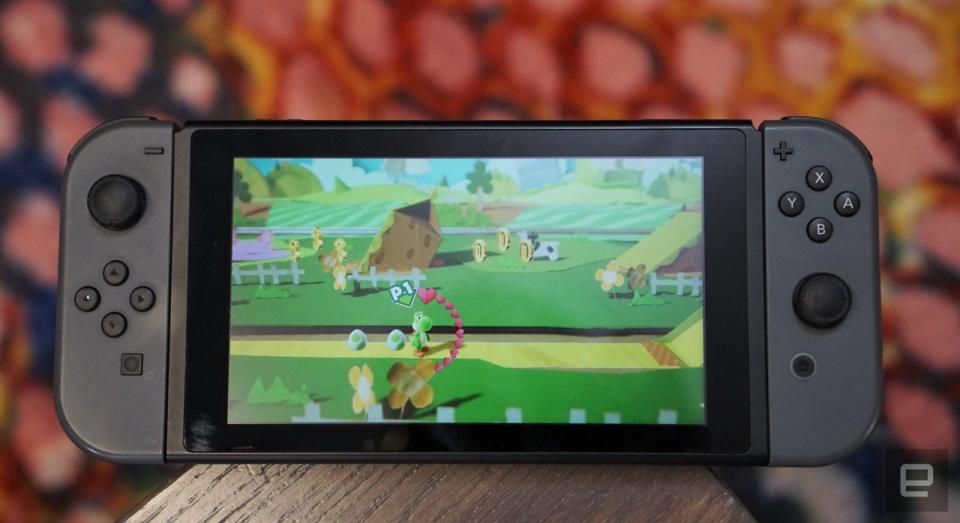Nintendo Switch revisited: Two years makes a big difference
The portable console experiment only seems to be getting better with age.
The Nintendo Switch is no Wii U -- we knew that much when we reviewed it on March 1st, 2017. Its portable design lets you play your games anywhere, and it seamlessly turns into a home console when you dock it, something that still feels magical today. Best of all, you can hand off one of its controllers to a friend for some quick head-to-head action. While Sony and Microsoft chased the specter of high-end 4K gaming, Nintendo, once again, took a different path -- one that ultimately led to its most innovative console yet. It's still not perfect, but Nintendo managed to fix most of the complaints, like a lack of titles and no real online service, from our initial review. And it also showed us a few surprises along the way. There's no doubt the Switch is a success. So far, Nintendo has sold more than 32 million units, more than both the PlayStation 4 and Xbox One at the same point in their lifetimes. Unlike Sony's and Microsoft's consoles, which share plenty of titles and PC-like hardware, the Switch is a unique beast. It has the advantage of Nintendo's strong first-party titles, and of course, its portability is key. And instead of just competing with the other consoles directly, it's also something that many gamers might want alongside their more-powerful Xbox One or PlayStation 4. It wasn't all smooth sailing though. It took Nintendo nearly two years to launch Switch Online, its first premium console network. At $20 per year, it's a third of what you'd have to pay for PlayStation Plus and Xbox Live, and it also gives you access to a slew of NES titles. While Switch Online is a great deal, it's still a bit confusing for consumers, since Nintendo has already offered free multiplayer on titles like Mario Kart 8 and Splatoon 2. Having to pay for something that simply worked before is jarring. There are a few other quirks with Switch Online as well. It finally brings cloud saves to the system, so you won't have to worry about losing 200 hours of progress in Breath of the Wild if your Switch get stolen. But it doesn't work with every game: Titles like Splatoon 2 and Pokemon: Let's Go simply aren't supported. Nintendo claims it's limiting the feature to avoid cheating, since it would keep players from regaining items they've traded with friends or reverting back to a higher multiplayer ranking after losing a match. But that doesn't make much sense when other unsupported titles, like Dark Souls: Remastered and FIFA 19, have cloud saves on other platforms. Maybe it came too late for developers to adopt it, but hopefully we'll see wider support for cloud saves with this year's games. And then there's voice chatting: You have to use Nintendo's Android or iPhone phone app to talk with your friends for most titles. I can see why Nintendo chose this route. By bringing the feature to your phone, you can easily control your chats without trudging through console menus. But it also means you have to juggle another device, which makes voice chat far less seamless than with the Xbox One and PlayStation 4. Basically, it feels like voice chatting was either an afterthought for Nintendo or it just misjudged how gamers actually want to use it. At least there's an alternative: Fortnite uses the third-party service Vivox for voice chat, which lets you plug a headset and microphone into the Switch. That could eventually make its way to other titles. Similarly, Epic Games also announced that it'll be developing its own cross-platform voice-chat system that will work on consoles, PC and mobile. Switch Online works the way you'd expect when it comes to actually playing games over the internet. It doesn't take long to find matches on Super Smash Bros. Ultimate or Mario Kart 8 Deluxe, and network performance is typically solid (of course, that depends on how good your WiFi is too). It's hard to be impressed, though, given that Nintendo was so late in introducing a unified online service. There's certainly room for things to get better: Nintendo surprised everyone by making Tetris 99, a battle royale-esque version of the classic puzzler, a free download for Switch Online subscribers. And an intrepid fan found some references to upcoming SNES titles on the service, which would be a huge upgrade over the NES games so far. Nintendo says it doesn't plan to launch a Virtual Console on the Switch, which is how you previously got access to retro games on its earlier systems. But that might not matter much if Switch Online gets a more robust library of free titles. And the company can always sell older games directly on the eShop, which is less restrictive than the Virtual Console was, especially when it comes to pricing. It was always strange paying $10 for the Nintendo 64's Ocarina of Time and then seeing a less complex DS game, like DK Jungle Climber, for the same price. Compilations like Capcom's Street Fighter 30th Anniversary Collection are also a worthy alternative: For the price of a single game, you get access to a bunch of faithfully rendered older titles. While Switch Online is the single biggest addition to the system, Nintendo has also been incrementally improving the console. And in the process, it fixed many of the concerns from our original review. For one, the meager selection of launch titles made it a tough sell for most of the system's first year. But now there are plenty of games to choose from. Of course, the biggest releases come from Nintendo and its partners, but the Switch has also become a haven for indie titles like Hollow Knight and Dead Cells. The vast number of independent choices makes it tough to tell what's worth playing sometimes though. It'd be nice if Nintendo offered a more curated experience through the eShop, or at least a better way to filter what you're looking for. There's another big hurdle for developers to overcome: the Switch's meager specs. It's powered by a custom NVIDIA Tegra processor, which is serviceable enough for HD gaming, but it can't compete with the graphical prowess of either the Xbox One or PlayStation 4. But there is one way that could change: In Japan, Nintendo is also letting developers stream some high-end titles to the Switch, including Phantasy Star Online 2, Assassin's Creed Odyssey and Resident Evil (AKA Biohazard) 7. That's a clever work-around for the system's weak hardware. But given the complexity of game streaming, it would be hard for developers to offer those titles in other countries. That would involve setting up data centers across the world, and they'd have to deal with the varying quality of internet access in other countries. In Japan, they can always rely on fast internet access and a stable infrastructure. Xbox Live's upcoming multiplayer integration with the Switch also raises some questions. A portable game console would be the perfect home for the upcoming Xbox game streaming service. To be clear, though, it's unlikely that'll happen, since it would involve an unprecedented collaboration between competing console makers. But back to the Switch as it is today. Nintendo caught a lot of flak for not including Bluetooth headphone support at launch, and unfortunately it looks like that's something we'll never see with this model. One possibility is that it could interfere with the Joy-Con's wireless connection, which also relies on Bluetooth. (Nintendo has never given an official reason why there's no Bluetooth audio support, and it didn't respond to our questions about that feature when the system launched either.) If you're desperate, though, you could always pick up an external Bluetooth adapter and plug it into your Switch's aux port. Nintendo did throw us a bone by adding support for wireless headphones that rely on USB dongles, but that's still an imperfect solution: They only work when the Switch is docked, and not every dongle headset is supported. If you're planning to make the wireless jump, be sure to check online to see if the headphones you want actually work. This is less of a problem with other consoles, since you can just plug a pair of headphones into Sony's and Microsoft's controllers. While Nintendo's portable hardware has generally held up well to abuse, I was still surprised to find that my Switch is relatively unscathed after two years. I've dropped it several times, and the screen is still scratch free. It's traveled with me all over the world, and the system has survived being stuffed into my backpack alongside my computer and other gear. I'm also shocked that my Joy-Cons and Pro Controller also still feel very responsive, even after hundreds of hours of gameplay. Of course, that's just my experience. Some Switch owners I know have had to open up their Joy-Cons to clean them out with compressed air. And when the system launched, there were widespread complaints about the left Joy-Con's Bluetooth reception. Nintendo attributed that to a manufacturing flaw, and it was able to fix affected controllers with a bit of conductive foam. The company also claims that later iterations of those controllers solved the problem completely. The only real issue I've noticed is that the sliding rails for the Joy-Cons wear out easily: I don't even have to hit the eject button to yank out my left controller anymore. That hasn't been a huge issue for me, but I could see it being a problem if it flies out in the middle of a Fortnite round. The Switch's battery life hasn't gotten much worse either: I can still get close to three hours of playtime with graphics-heavy titles like Zelda. Nintendo's decision to go with USB-C for charging was clearly the right one. Now that plenty of smartphones and laptops use that standard, I'm rarely far from a spare USB-C cable. External battery packs are also cheaper than ever, and they're a great option if you're going to be stuck on a long flight with no onboard power. Looking ahead, there are clearly several ways Nintendo could improve the Switch. I'd personally love an alternative left Joy-Con with an actual D-pad. There are some third-party options around, but they don't feel nearly as great as a proper Nintendo pad. And while it's nice to see the system becoming a haven for indie games, Nintendo still has to do more to court developers. Even though there are still some lingering issues with the Switch since my initial review, it's abundantly clear that Nintendo has learned from its mistakes with the Wii U. There are more games and better hardware overall, and it's far more useful as a portable system (don't forget, the Wii U's gamepad display had to be within range of the console). But is it a safe bet, two years after its release? For the most part, I'd say yes. There are rumors of a smaller and cheaper Switch coming later this year, but that doesn't seem like it's meant to replace the current model. An inexpensive Switch would make a lot of sense, since Nintendo hasn't budged on the system's $300 price. There's still a chance that could get reduced later this year, but so far retailers have just discounted game bundles during the holidays to tempt shoppers. The Switch arrived at a strange time in the gaming world, right between the PlayStation 4 Pro and Xbox One X. Those were both systems chasing the specter of 4K HDR gaming. The Switch, meanwhile, is still stuck firmly in the HD world. While I appreciate the raw power that its competitors offer, the Switch proved that power isn't everything. Instead, it harkened back to a time when we played games on the couch against our friends, and it made it clear that a true console experience could travel with you during your commute. Once again, Nintendo redefined how we could think of game consoles. Of course, there are still things I'd like Nintendo to fix eventually with future Switch models. There's certainly room for a larger, higher-resolution screen with smaller bezels. It'd also be great to see more-secure Joy-Con rails, refined buttons on the controllers and of course additional power under the hood. As I think about where Nintendo could be headed over the next few years, I can't help but be excited. Microsoft and Sony will both continue to play the same hardware game, building boxes that might as well be gaming PCs. Maybe ray tracing will actually be ready by next year, when we expect their next systems to arrive. And maybe Microsoft or Sony will finally deliver a perfect wireless-VR solution for living rooms. But Nintendo will keep sailing uncharted waters. The next Switch probably won't be able to keep up with the competition when it comes to pure specs, but that won't matter.
